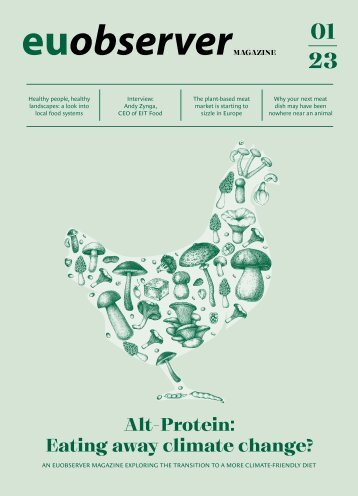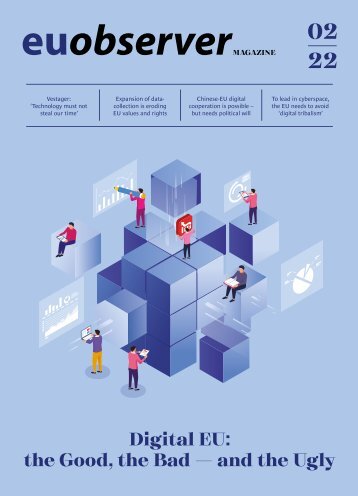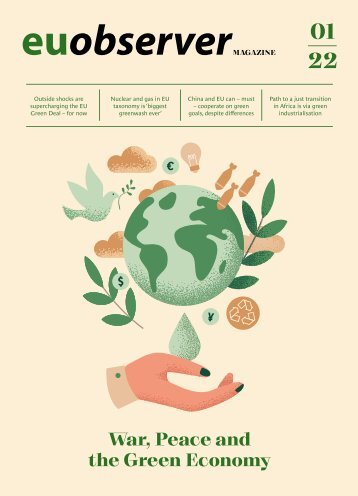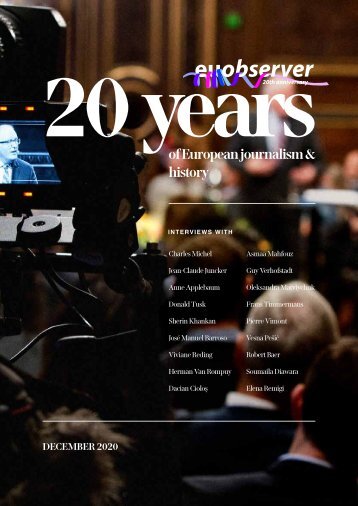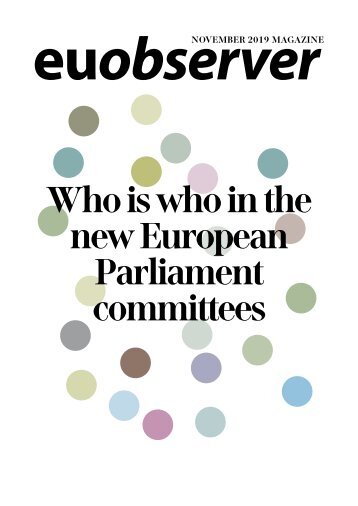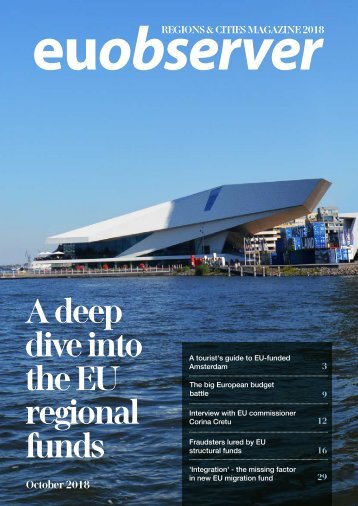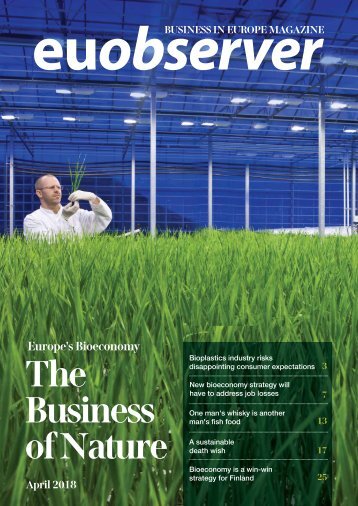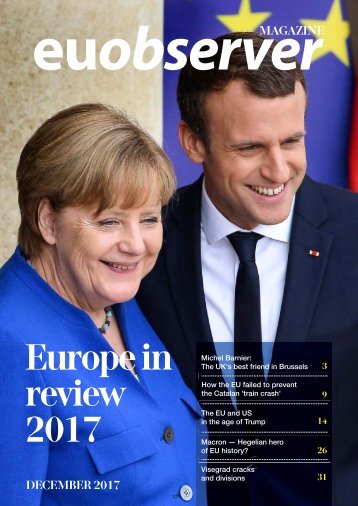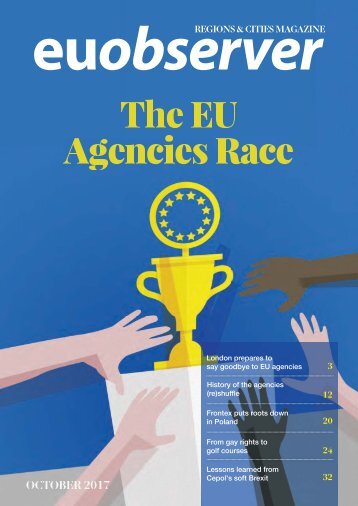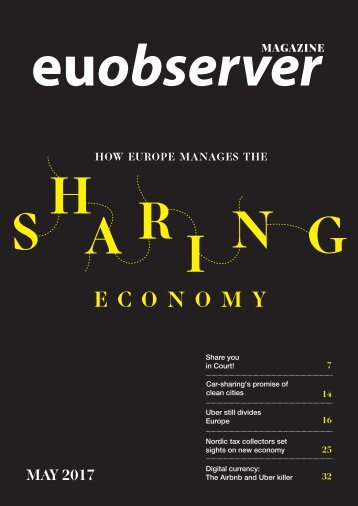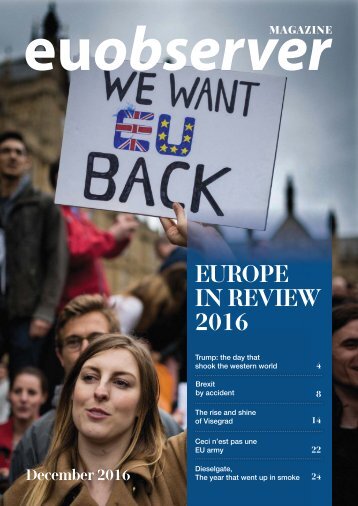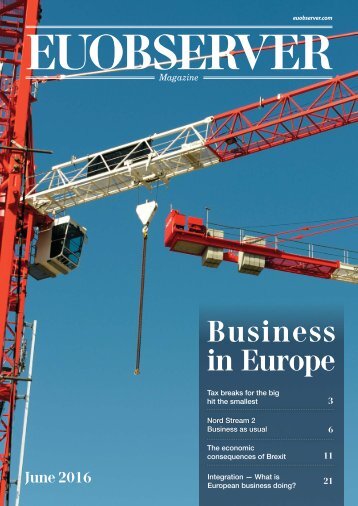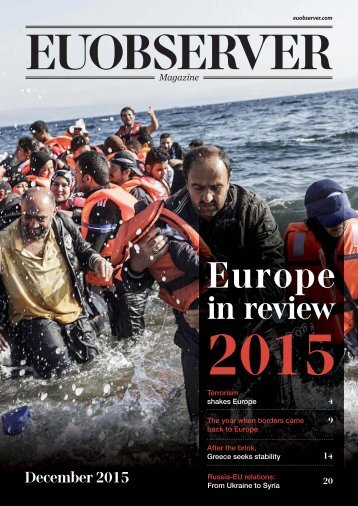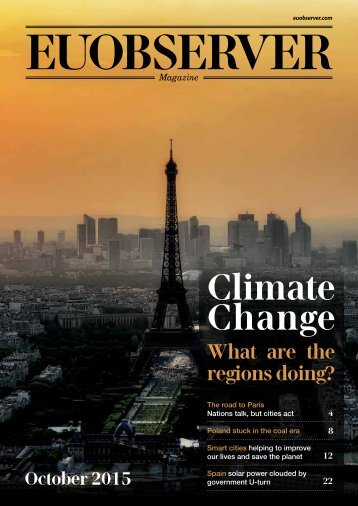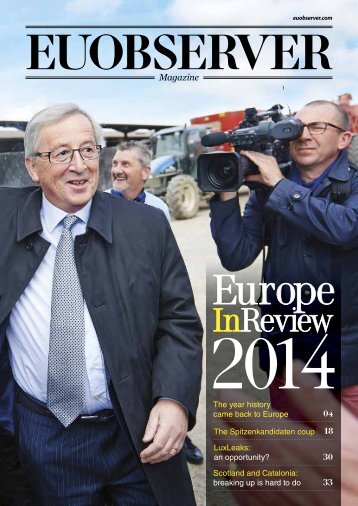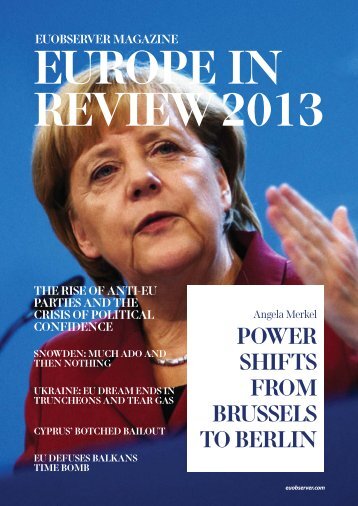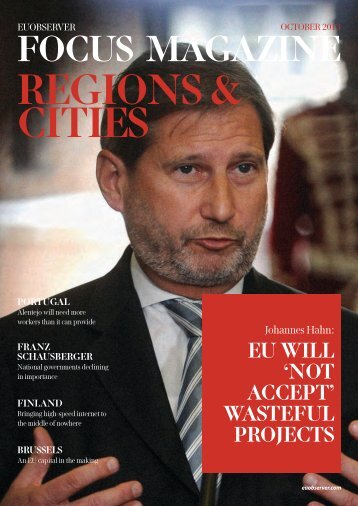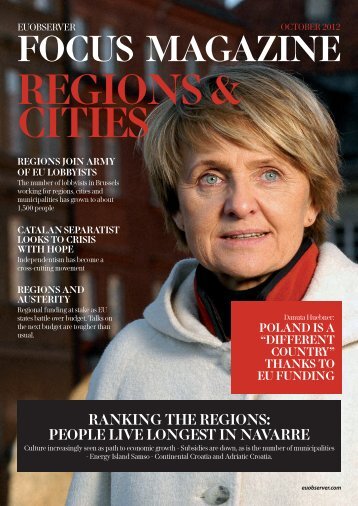Europe's Bioeconomy: The Business of Nature
- Text
- Food
- Nature
- Environment
- Union
- Agriculture
- Forestry
- Science
- Biotech
- Bioeconomy
problem Photo: European
problem Photo: European Commission Nevertheless, in the summer of 2017, some of the EU member states that were suspicious of being treated differently, lobbied commission president Jean-Claude Juncker to view the issue as a pan- EU problem. Successfully. After a meeting with then Slovak prime minister Robert Fico, at the end of July 2017, Juncker came out in defence of Slovak consumers, saying they have the right to have the same quality of products. "I don't like the idea that there would be some kind of second-category citizens in Europe, so we are working on that," Juncker said. September 2017, but only after an initial draft was substantially amended. The directorate-general for competition (DG COMP) said in a response to a draft version of the 'guidance note' that quality has different meanings to citizens. Taste is subjective: Some would say that more alcohol or sugar in a product means it has a higher quality, while others would argue the opposite. "DG COMP has not received evidence about the products for which there are complaints of 'dual-quality'. DG COMP therefore does not understand fully what is meant by 'dual quality' (…)," said the contribution of the anti-trust department. WHAT DOES 'DUAL QUALITY' MEAN? Since there was no appetite for new legislation, the commission opted to write a 'guidance note' – a non-binding paper – to explain how EU law can be used to tackle potential instances of unfair commercial practices. The paper came out in The secretariat-general meanwhile took to rewriting whole parts of the draft, which had been prepared by the directorate-general for justice and consumers. A high-level civil servant of the secretariat-general wrote that the political context document, it was. BUSINESS IN EUROPE MAGAZINE 2018
And despite earlier warnings not to commit to doing any study because it would take too long, this was in the end the chosen route. The Joint Research Centre (JRC) – the commission's in-house think tank – was tasked with investigating the extent of the dual-food quality phenomenon. The document laying out the assignment said that the JRC should come up with a methodology, and analyse between 100 and 500 products. The interim report is scheduled for December 2018, after the European Parliament elections and only two months before Juncker's term is up. in Austria. Photo: Superbass Making sense of the EU Get the latest news, analysis and investigations Subscribe today. Cancel anytime Special discount Save 50% €150 €75 per year or €15 per month Discount code: EUOBS50 EUROPE IN REVIEW 2017 BUSINESS IN EUROPE MAGAZINE 2018
- Page 1 and 2: BUSINESS IN EUROPE MAGAZINE Europe'
- Page 3 and 4: Bioplastics industry risks disappoi
- Page 5 and 6: Ready for your new adventure in Bel
- Page 7 and 8: NEW BIOECONOMY STRATEGY WILL HAVE T
- Page 9 and 10: The EU's bioeconomy in figures The
- Page 11 and 12: Jobs in the bioeconomy in 2014 The
- Page 13 and 14: One man's whisky is another man's f
- Page 15 and 16: Photo: IBioIC exp
- Page 17 and 18: A sustainable death wish No one can
- Page 19 and 20: and then shattered into smaller pie
- Page 21: commission's various directorates-g
- Page 25 and 26: BIOECONOMY IS A WIN/WIN STRATEGY FO
- Page 27 and 28: GLOBAL SCARCITY OF NATURAL RESOURCE
- Page 29 and 30: Photo: The Humane League No end in
- Page 31 and 32: WTO arbitration panel in Geneva, bu
Inappropriate
Loading...
Mail this publication
Loading...
Embed
Loading...

